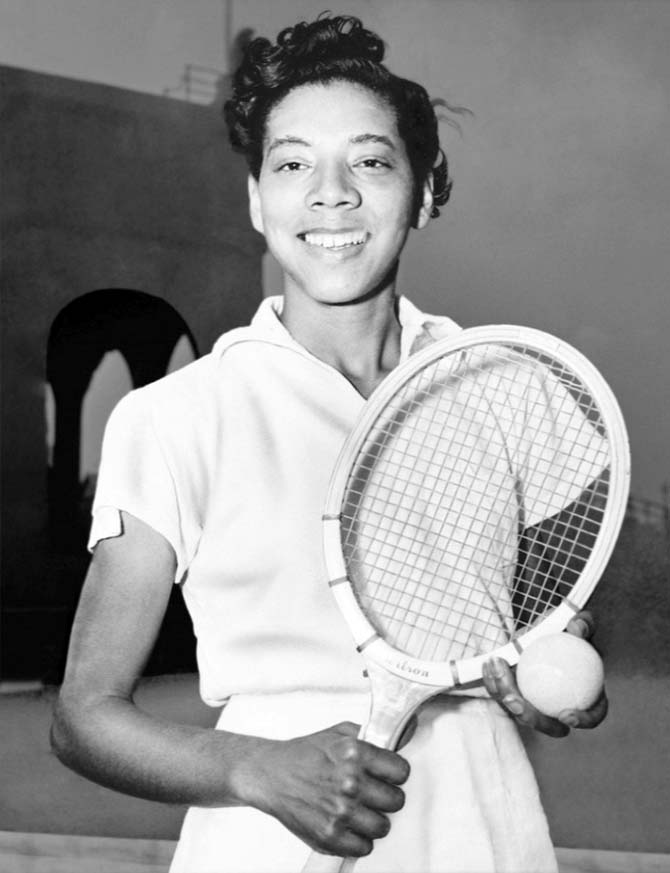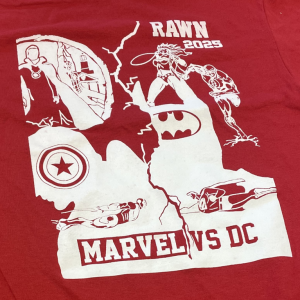Althea Gibson smashed racial barriers and set records
As we move into Women’s History Month, it’s important to remember the female athletes who overcame hurdles alongside their male counterparts
February 28, 2021
While many people remember the valiant Jackie Robinson and his contribution to social injustice and the Civil Rights Movement, figures such as Althea Neale Gibson are forgotten. Gibson was an admired player in the 1950s, the first-ever African American to compete in National Championships for tennis. She became a trailblazer in the sports world, overcoming racial blockades that would change the game for succeeding generations.
Gibson was born in Silver, South Carolina on August 25, 1927, and shortly after, moved to Harlem. As a child, her passions were overshadowed by her family’s poverty. Her parents relied on public housing and struggled to provide for their children during her upbringing. Gibson, making matters more complicated, struggled in school and played hooky, often acting sick to skip school. This added to the families’ burden, as they constantly argued that school needed to be a priority.
Gibson’s tennis career started early on with cordial table tennis competitions. Her talents earned her the local table tennis champion title and an invite to play on local tennis courts by Buddy Walker, a musician who immediately respected her game and applauded her abilities. Walker gave Gibson her first tennis racket. His benevolence played an immense role in her journey to becoming an accomplished athlete.
With her new racket, she began playing in nearby recreational tournaments. She entered and won her first American Tennis Association tournament in 1941. Gibson received an athletic scholarship to Florida A&M University, where she would graduate in 1953. She won two more American Tennis Association competitions and started her winning streak from 1947 to 1956. Rivals strived to break her streak, but her record remained resilient. Sports were still segregated and predominantly white, so, despite her advanced skills, she was denied many opportunities to complete on a larger scale.
There were a few times during her career when she thought of quitting. Gibson was ridiculed and mocked during her matches. Fans for the opposing player(s) yelled racial slurs, some even trying to spit on her. Upon hearing of Emmett Till’s tragic death and viewing the boy’s mutilated body, Gibson was heartbroken. His death reignited a fury that stripped Gibson, and many others, of their motivation. She considered giving up all her efforts to serve in the army. Enduring all the hardships, she decided not to. She used the unfair treatment of Black Americans to encourage her, fighting even harder for her dreams.
In 1957, Gibson became the first Black American to compete in Wimbledon, an international tennis championship. She dominated the women’s portion, winning both the singles and doubles. She was also triumphant in the French and U.S. Open. Gibson became a professional tennis player in 1959 after winning 56 singles and doubles championship matches. She had a very victorious career and made a name for herself. Gibson later retired and was admitted into the International Tennis Hall of Fame. During her last years, she was stricken with illnesses, specifically relating to her heart. She died on September 28, 2003, in East Orange, New Jersey from respiratory failure.
It is important to remember Althea Gibson and all she has done. Her athletic talents helped to uplift the Civil Rights Movement and Black pride, and empowered black women worldwide. She continues to inspire future generations of children to dream big and persevere through all inconveniences, including today’s Serena Williams and Cori Gauff.
“For me, she was the most important pioneer for tennis,” Williams told wtatennis.com when reflecting on Gibson’s success. “She was black, she looked like me, and she opened up so many doors.”







